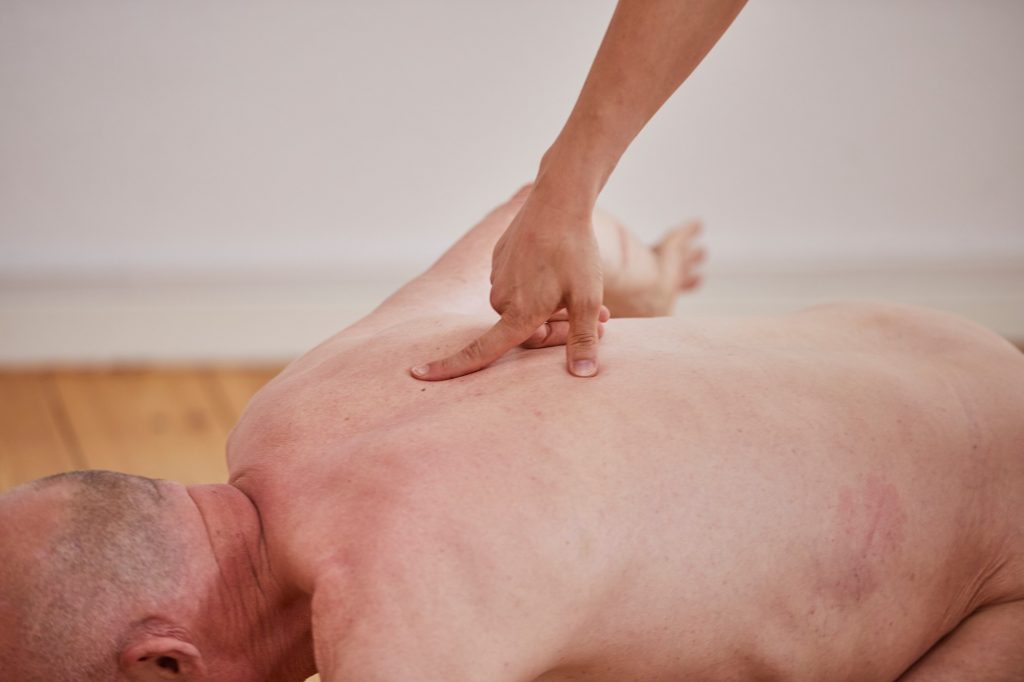Julia & Delta
Conscious kink with the victims and perpetrators in us. A pleasure game about actions, communication and responsibility.
Aim
– Conscious and playful confrontation with one’s own values, fears and the pleasure of being a perpetrator and a victim.
– Detachment from the moral evaluation and classification “perpetrator=bad” and “victim=good”.
– Getting involved in the conditional structure of “perpetrator” – “victim” in a playful framework.
– Foundation for conscious kink play around power and powerlessness: experiencing honest communication and taking on mutual responsibility.
Reflection on the theme of victim-perpetrator:
– most of us remember ourselves as children in cops and robbers-like play situations. How we negotiated rules of the game, spinning fantasies with each other, forging complicity, tickling nerves, exploring power and pain, struggling for closeness and distance. Hunting, fleeing, capturing, escaping in an endless loop…
I myself remember the deep satisfaction of being part of this framework: To be a member of this community – no matter whether as victim or perpetrator – was the main thing.
– Victims and perpetrators represent evaluations. That is human. As adults, we are responsible for what we do. We create moral pigeonholes for ourselves – they give us orientation in complex social structures. Victims and perpetrators are the necessary cast of characters so that the rules we set up for getting along with each other become tangible. They form the two extreme poles of a field of tension between “good” and “bad”, “conforming to the rules” and “breaking the rules”. Between sacrificial lambs, scapegoats and black sheep, I can place myself, feel myself in all the boundaries that surround me.
– But this juxtaposition is unreliably simplistic. Victims and perpetrators are not incompatible. No perpetrator without a victim, no victim without a perpetrator. The two are mutually dependent, must engage with each other. They enter into a (potentially extremely intense) relation. A human being in all his or her actions constantly moves in this energy field between “morally correct – reprehensible”, “active – passive”, “power – powerlessness”.
Detaching from the labelling of “guilt – innocence” towards mutual acceptance of responsibility does justice to the fact:
WE ARE ALL PERPETRATORS AND VICTIMS.
– What makes us want to explore the energy field “perpetrator-victim”? Where do seemingly crass, horny fantasies around power and powerlessness, control and loss of control come from?
– We are hunters and collectors. Dying and letting die is a primal motive that leaves no one cold. In the world of animals we speak of the predator-prey relationship. One organism uses another to feed itself. Hunting and being hunted/killed always go along with each other, by nature. This is how complex systems normally stay in a vivid balance.
-We are social beings. We are calibrated for communication and confrontation with our peers. We rub up against each other, arrange ourselves in power hierarchies. “Fight or flight”: that’s what we instinctively do. Even if we do it at the expense of our counterpart: we have a deep need for closeness, for “belonging”. Alone we cannot survive. Alone we cannot develop to what is inside us.
– Conscious kink makes it possible to “do” something to each other in freedom and mutual respect. Without coercion or violence.
With trust and communication. In consent and mutual acceptance of responsibility.
-This happens when I honestly communicate what I want to do as a perpetrator or what I want to let happen to me as a victim.
When I engage in honest, empathic complicity and respect the mutually set rules, then I am never completely at someone’s mercy. Neither as the more active nor as a more passive part.
– In this workshop we will explore victim-perpetrator constellations in a 1:1 setting as well as in the dynamics of the whole group.
Classic scenarios will come into play (e.g. “the wolf in sheep’s clothing”, “the confrontation”, “the kidnapping”, “the trap”, “the breakout”), but also a lot of freedom to experiment with one’s own ideas about the game of control and loss of control.

